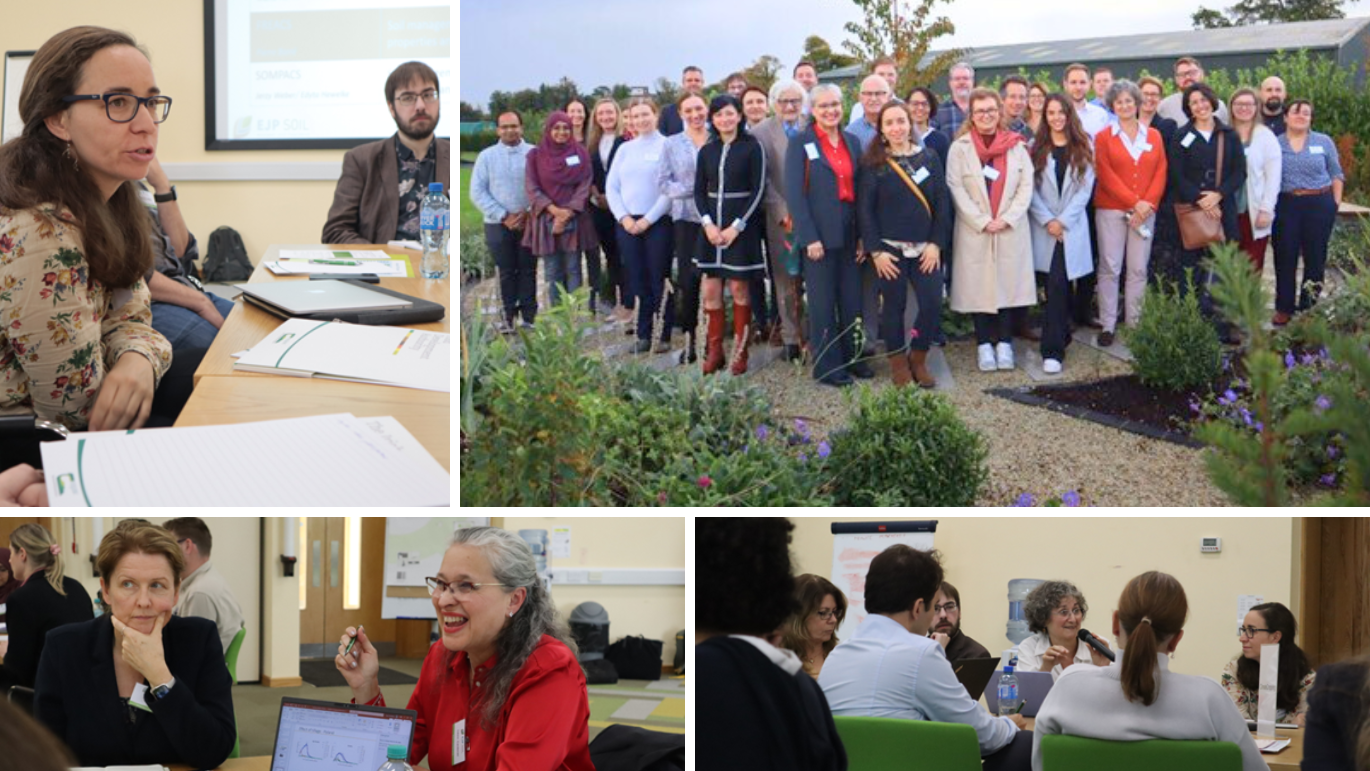Successful event in Dublin a boost for EJP SOIL
Researchers working in the EJP SOIL external projects met in Dublin for a conference on the 24th and 25th of October 2023. The purpose was to discuss the work done so far, foster new connections, and identify synergies within EJP SOIL. It was a successful event with plenty of novel insights and relationships to feed into EJP SOIL’s impact in both science, policy, and practice.

The EJP SOIL external projects are a total of eighteen projects funded under EJP SOIL led by researchers outside of the consortium. They kicked off last year and earlier this year, and they plan to finish in 2024 and 2025.
The projects bring together researchers from a range of countries all over the world, including Brazil, Cameroon, Canada, and New Zealand, to name a few. Their research projects focus on a range of topics, including carbon sequestration, sustainable soil management methods, climate change mitigation, and capacity building in terms of data and method accessibility for less developed countries.
For the first time, the researchers recently met for a conference in Dublin where they presented and discussed their projects in a series of round tables. In total, fourteen projects participated.
The topics span from “teaching” soils to adapt to saline conditions (SoilSalAdapt), and developing probiotics to restore soil health after flooding (SoilSynbiotics), to increasing the understanding of tillage on soil physical properties (TilSoilC), climate smart management on resilient cropping systems (ClimateCropping), and soil ecosystem services (SOIL-ES) and expanding the knowledge on the role of soil fungus for soil’s climate change resilience (SOILHEAL). It was easy to spot the enthusiasm among the round table participants during the conversations.
Besides sharing the finished and upcoming work within the projects, the researchers also learned about the science-to-policy procedures within EJP SOIL. David Wall, researcher at the Irish institute Teagasc and leader of the EJP SOIL science-to-policy work, explained how the projects can contribute to EJP SOIL’s efforts to inform policymakers about sustainable soil management. Several policy briefs based on EJP SOIL research results are being produced right now, and will be published within the upcoming months, he said.
The meeting was an important step in integrating the external projects into the different activities within EJP SOIL, such as pushing soil science forward and communicating research results to stakeholders in both policymaking and agriculture.
LINKS
Read about the external projects here: Internal & External Projects (ejpsoil.eu)